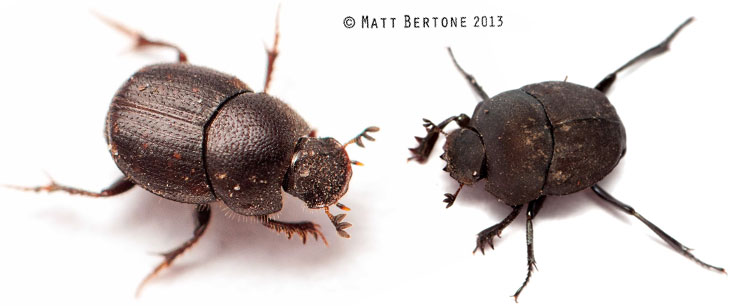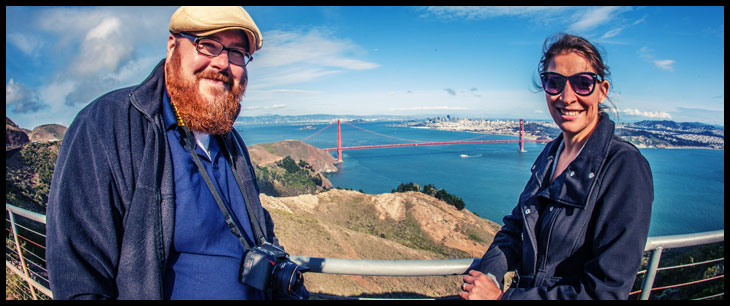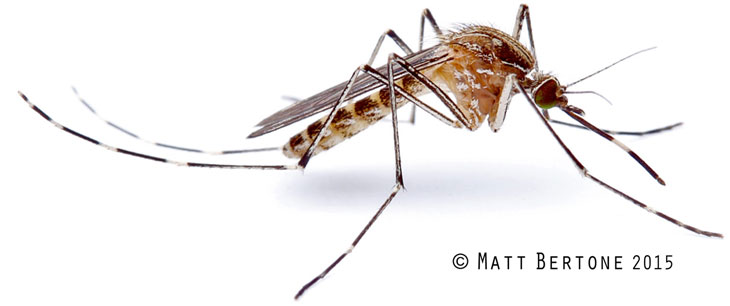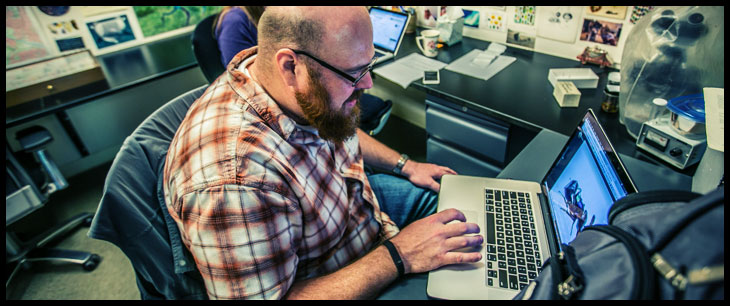I got the chance to work with Matt as part of my work on the Bugs of the 7 Continents Study via Michelle Trautwein. Matt was looking at how many bugs you find in average North Carolina homes. He was the expert bug ID guy. I can hardly imagine going on one of these arthropod hunts without someone as knowledgable as he is. He’s also a fantastic macro-photographer. Here are a few questions I asked him about being an entomologist.
What insect/bug/arthropod best describes you (or what’s your favorite one(s)?
I have so many favorite arthropods it’s difficult to choose just one! Everyday I find out something new and amazing about a particular group and it makes me love them more. I generally like all insects and other critters, but flies, beetles and spiders are among my favorites. If I had to choose one that best describes me it would be the dung beetle – slow and methodical, tough and often misunderstood, but always interesting if not a bit disgusting or weird.

What is your “job description”
Other than being an entomologist, my job description would be systematist/diagnostician. Systematists focus on the naming (taxonomy) and organization of organisms. We study evolution and biodiversity using many techniques, from simply looking at differences in body parts to analyzing the DNA sequences of them. This is also the science that most directly helps with identifying insects and other arthropods (diagnostician), which is my specific job.

What do you study now?
My job does not involve a lot of research, but rather extension which is the process of communicating what we learn at universities to the public and other clients. That said I do study insects and other arthropods that are new to our area and aid other researchers in identifying their research subjects, like arthropods from ecological field sites or ones used in experiments.
What is the best thing about your job?
I get to see a wide variety of amazing critters without leaving my desk — although I do also like field work. Also it is great being able to directly help people while also doing something I love. It is extremely gratifying work.

What is the worst thing about your job?
Aside from some stinky, rotten plants, the worst part of my job is dealing with people who insist they have bugs all over their homes or biting their body, even when there is no evidence for any organisms being present. This is a very difficult thing to deal with and has a specific name: delusory parasitosis. People just want something to spray to solve the problem, but unfortunately I can’t help in those situations.
What inspired you to first study science?
Honestly, I never thought about “doing science” as much as I wanted to know all I could about insects and their relatives (along with many other animals and nature as a whole). I always read books about animals and loved the creepy ones the most. It wasn’t until graduate school that I found out about the true process of scientific research, but I have enjoyed it ever since.

What do you do in a typical day?
Typically I answer emails and calls, look at plants with issues and insect specimens, and enter IDs into a database which we then report out to clients with options for how to control them (if needed). I also read a lot of scientific papers and do a lot of writing — either blog posts, scientific papers or just communications. I take lots of photographs, both for fun and to illustrate what I am seeing. Lastly, I prepare insect specimens to be curated into our insect collection and otherwise just fill my time with various projects and responsibilities.

What advice would you give to someone interested in becoming an entomologist?
Entomologists, like arthropods, do so many things it’s hard to give any single piece of advice. Some focus on physiology, others on controlling insects, while still others do population genetics or ecological studies. But here are some general directions. First, as with all scientists be curious and question everything. After that figure out ways you would find answers to your questions. Read lots of books and papers, and think about them critically. Make observations about the things you find around you — there’s a chance no one has ever observed what you have. Pay attention in school, even to subjects you may not think are related, and look for ways to interact with or help local researchers. Most importantly be open minded and enthusiastic. Once you start meeting more scientists and others interested in entomology your world will open up and you can see where your contributions will mater most.
































































































